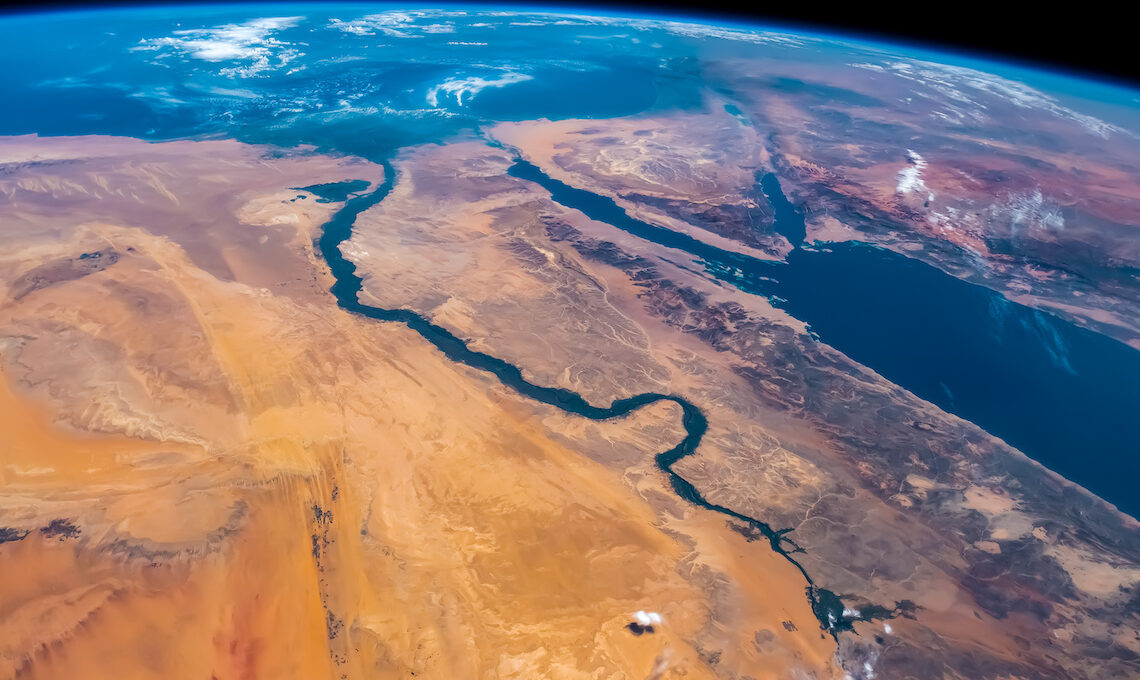
Space tech assists environmental efforts in the Arab region
Movement of sand dunes poses a serious threat to safety on the roads, and to agriculture across the Arab region. Satellite data allows users to recognise the movement of the sand with a precision range of 2 mm per second. Thereby, travellers can be advised to take alternative routes, and farmers can take measures to protect their crops in due time.
Simulations of sand dune movements is just one of many examples of how space technology can help the region to protect its environment. Coordinated by ENSTINET, the national research and education network (NREN) of Egypt, 12 research centres in the region are actively using space technology.
While sand dune movements are seen across the entire region, several other challenges can also be addressed through space technology. For instance, remote sensing satellites can monitor marine resources and pollution levels. Also, real-time data on air quality can provide essential information not least to those suffering from respiratory and cardiovascular diseases.
Monitoring marine oil spills
Over the course of two years, from 2016 to 2018, a regional study using satellite data recorded 127 oil spills alongside the Moroccan Atlantic Coast polluting waters and coastlines, and 279 oil spill cases along the Egyptian coastline of the Mediterranean and Red Sea.
Further, space technology can monitor rising sea levels and their impact on the coastal cultural heritage of Arab countries. For example, in Alexandria simulations were run to test how different scenarios could impact the city’s coastline. The same is true for inland cultural heritage impacted by temperature changes, flash floods, and droughts.
Egypt, Algeria, United Arab Emirates, Saudi Arabia, Tunisia, Oman, and Morocco have already launched satellites, and several more are due to be launched by these and other countries in the region in the near future. Further, several ongoing projects are in collaboration with sub-Saharan African countries. For example, the African Development Satellite Initiative (AfDev-Sat) aims at detecting climate change and enable African countries to build their own space system. The initiative is led by the Egyptian Space Agency (EgSA) with participation from Sudan, Kenya, Uganda, Ghana, and Nigeria.
In support of Sustainable Development Goals
Professor Islam Abou El-Magd, Executive Vice President of EgSA, delivered a keynote at a recent space tech conference in Cairo, Egypt:
“The advancement of space technology is at maximum and whoever delays will not be able to be in the race. Recently, the total space budget in the Arab region exceeds 1.5 billion USD and the region has demonstrated remarkable dynamicity in this technology. Hence, it is the right time for Arab states to coordinate and cooperate in space technology and its applications to meet our regional challenges and improve our socio-economic growth aiming at increasing the revenue from the space industry,” said Professor El-Magd, continuing:
“Egypt is hosting the African Space Agency that will implement the African Space Policy and Strategy to achieve the African Agenda 2063 and the UN Sustainable Development Goals. It is an inspiration to Arab states to follow the steps.”
Scalable, robust capacity is required to meet the critical space technology parameters, including bandwidth and low latency, reliability, and geographical scope. EgSA is connected via the Ministry of Communications and Information Technology to researchers and decision makers through a 70 Gbps (gigabits per second) link.
The text is inspired by the article “Space technology in the Arab world: The need for cross-country collaboration to achieve SDGs” at the AfricaConnect3 website.
For more information please contact our contributor(s):

